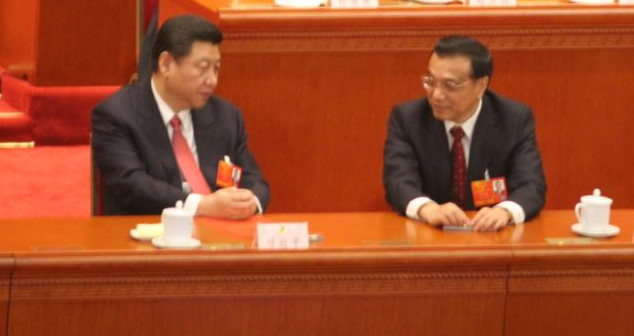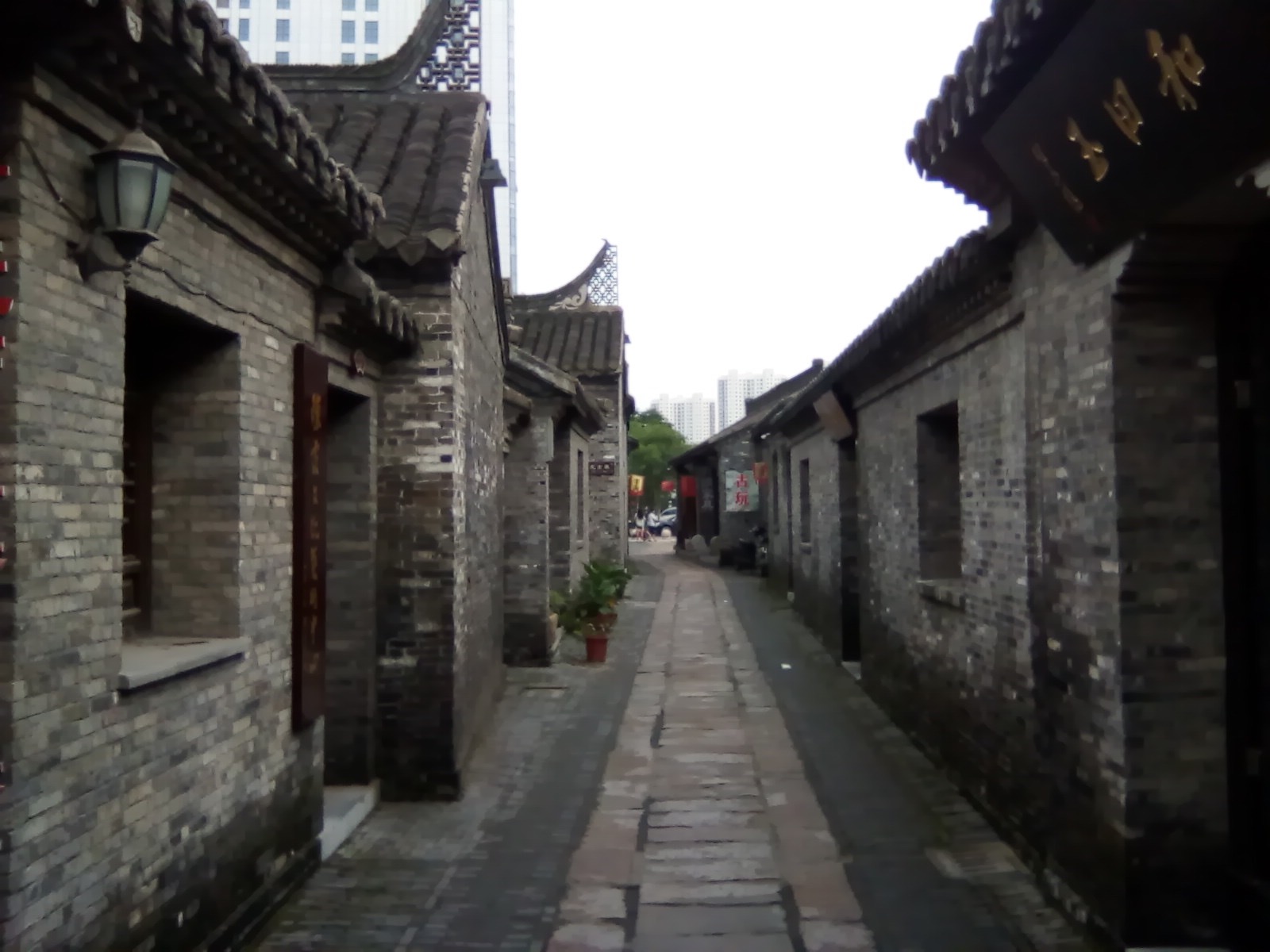|
Xi–Li Administration
The Xi–Li Administration () of the People's Republic of China began in 2013, when Xi Jinping and Li Keqiang succeeded Hu Jintao and Wen Jiabao following the 18th National Congress of the Chinese Communist Party. It is speculated that Xi will solidify the political power of the General Secretary of the Chinese Communist Party, for the absolute command of the Communist ideology over pragmatic approach, and on the economic front there will be no liberalization but socialist entrenchment. Along with Xi, who replaced Hu Jintao as General Secretary of the CCP (''de facto'' paramount leader) and President (''de jure'' head of state), and Li, who replaced Wen Jiabao as Premier (head of government), the fifth generation of CCP leadership includes Zhang Dejiang, Yu Zhengsheng, Liu Yunshan, Wang Qishan, Zhang Gaoli, Li Yuanchao, Liu Yandong and Wang Yang. Functions and powers Politburo Standing Committee Presidency National People's Congress and Chinese Peop ... [...More Info...] [...Related Items...] OR: [Wikipedia] [Google] [Baidu] |
Xi Jinping
Xi Jinping ( ; ; ; born 15 June 1953) is a Chinese politician who has served as the general secretary of the Chinese Communist Party (CCP) and chairman of the Central Military Commission (CMC), and thus as the paramount leader of China, since 2012. Xi has also served as the president of the People's Republic of China (PRC) since 2013. The son of Chinese Communist veteran Xi Zhongxun, Xi was exiled to rural Yanchuan County as a teenager following his father's purge during the Cultural Revolution. He lived in a yaodong in the village of Liangjiahe, Shaanxi province, where he joined the CCP after several failed attempts and worked as the local party secretary. After studying chemical engineering at Tsinghua University as a worker-peasant-soldier student, Xi rose through the ranks politically in China's coastal provinces. Xi was governor of Fujian from 1999 to 2002, before becoming governor and party secretary of neighboring Zhejiang from 2002 to 2007. Following dismis ... [...More Info...] [...Related Items...] OR: [Wikipedia] [Google] [Baidu] |
Hu Jintao
Hu Jintao (born 21 December 1942) is a Chinese politician who served as the 16–17th general secretary of the Chinese Communist Party (CCP) from 2002 to 2012, the 6th president of the People's Republic of China (PRC) from 2003 to 2013, and chairman of the Central Military Commission (CMC) from 2004 to 2012. He was a member of the CCP Politburo Standing Committee, China's ''de facto'' top decision-making body, from 1992 to 2012. Hu was the paramount leader of China from 2002 to 2012. Hu rose to power through the Chinese Communist Party (CCP), notably as Party Committee secretary for Guizhou province and the Tibet Autonomous Region, where his harsh repression of dissent gained him attention from the highest levels. He moved up to first secretary of the CCP Central Secretariat and vice president under CCP general secretary Jiang Zemin. Hu was the first leader of the Communist Party from a generation younger than those who participated in the civil war and the founding of ... [...More Info...] [...Related Items...] OR: [Wikipedia] [Google] [Baidu] |
Wang Qishan
Wang Qishan (; ; born 19 July 1948) is a Chinese politician, and the current Vice President of the People's Republic of China. Wang is one of the leading figures behind China's foreign affairs, along with President Xi Jinping and Premier Li Keqiang. Between 2012 and 2017, Wang had served as the Secretary of the Central Commission for Discipline Inspection, the Chinese Communist Party's internal control and anti-corruption body, and a member of the Politburo Standing Committee of the Chinese Communist Party. He has been instrumental in carrying out General Secretary Xi Jinping's anti-corruption campaign since 2013. Wang gained prominence in China's financial sector in the late 1980s. In 1994, Wang became the Governor of the China Construction Bank. Wang then successively served in three regional roles: Vice-Governor of Guangdong, Party Secretary of Hainan, and Mayor of Beijing. Wang then served as Vice-Premier in charge of finance and commercial affairs under premier Wen Ji ... [...More Info...] [...Related Items...] OR: [Wikipedia] [Google] [Baidu] |
Liu Yunshan
Liu Yunshan (; ; born July 1947) is a retired Chinese politician. He was a member of the Politburo Standing Committee of the Chinese Communist Party, the top decision-making body of the CCP, between 2012 and 2017; he was broadly tasked with the work of the party's secretariat, overseeing propaganda and ideological indoctrination, as well as party organization, in addition to serving as President of the Central Party School. Liu built his career in Inner Mongolia, working initially as a teacher, then a Xinhua reporter, before entering the Communist Youth League and the Inner Mongolia party propaganda department. He had a short stint working as the Party Secretary of the city of Chifeng, in Inner Mongolia. Between 2002 and 2012, Liu served as the head of the Central Propaganda Department. Liu, generally perceived by observers to be a conservative and orthodox Communist, oversaw the gradual tightening of internet controls in China during his tenure, as well as an overall reduction ... [...More Info...] [...Related Items...] OR: [Wikipedia] [Google] [Baidu] |
Zhang Dejiang
Zhang Dejiang (; born 4 November 1946) is a Chinese retired politician. He served as the Chairman of the Standing Committee of the 12th National People's Congress, roughly the equivalent of a speaker of parliament in other countries between 2013 and 2018. He was also a member of the Politburo Standing Committee of the Chinese Communist Party (CCP), deputy head of the National Security Commission and the top official responsible for Hong Kong and Macau affairs. Zhang has extensive regional governance experience unmatched by senior leaders of his generation. He successively served as the Party Secretary of the provinces of Jilin, Zhejiang and Guangdong. The SARS outbreak began in Guangdong and occurred during Zhang's term as the provincial party chief there. He served as Vice-Premier in charge of energy, telecommunications, and transportation under Premier Wen Jiabao, widely known for being Wen's 'troubleshooter' of choice, leading various disaster response task forces, suc ... [...More Info...] [...Related Items...] OR: [Wikipedia] [Google] [Baidu] |
Generations Of Chinese Leadership
Generations of Chinese leadership is a term historians use to characterize distinct periods of the leadership of the Chinese Communist Party (CCP) and, by extension, successive changes in the ideology of the CCP. Historians have studied various periods in the development of the government of the People's Republic of China by reference to these "generations". Terminology While in English the chronological leadership groups are commonly referred to as "generations of Chinese leadership", there is no exact equivalent expression in Chinese. The usual term in official discourse for such a group is a "leadership collective", which are counted in generations. Thus, for example, the "first generation" of leaders identified below are labelled as "the first generation leadership collective". In official discourse, they are also not viewed as leaders of the ''state'' (the People's Republic of China), but rather leaders of the ''party'' (the CCP). In the CCP's official discourse, the "ge ... [...More Info...] [...Related Items...] OR: [Wikipedia] [Google] [Baidu] |
Head Of Government
The head of government is the highest or the second-highest official in the executive branch of a sovereign state, a federated state, or a self-governing colony, autonomous region, or other government who often presides over a cabinet, a group of ministers or secretaries who lead executive departments. In diplomacy, "head of government" is differentiated from "head of state"HEADS OF STATE, HEADS OF GOVERNMENT, MINISTERS FOR FOREIGN AFFAIRS , Protocol and Liaison Service, United Nations (19 October 2012). Retrieved 29 July 2013. although in some countries, for example the United States, they are the same person. The authority of a head of government, such as a president, chancellor, or prime minister and the relationship between that position and other state institut ... [...More Info...] [...Related Items...] OR: [Wikipedia] [Google] [Baidu] |
Premier Of The People's Republic Of China
The premier of the State Council of the People's Republic of China, commonly called the premier of China and sometimes also referred to as the prime minister, is the head of government of China and leader of the State Council. The premier is nominally the second most powerful position in China's political system, under the general secretary of the Chinese Communist Party (paramount leader), and holds the highest rank in the civil service of the central government. The premier is responsible to the National People's Congress and its Standing Committee. The premier serves for a five-year term, renewable once. The premier presides over the plenary and executive meetings of the State Council, and is assisted by vice premiers in their work. Every premier has been a member of the Politburo Standing Committee since the PRC's founding in 1949, except during brief transition periods. In China's political system, the premier is generally thought to be responsible for managing the eco ... [...More Info...] [...Related Items...] OR: [Wikipedia] [Google] [Baidu] |
Head Of State
A head of state (or chief of state) is the public persona who officially embodies a state Foakes, pp. 110–11 " he head of statebeing an embodiment of the State itself or representatitve of its international persona." in its unity and legitimacy. Depending on the country's form of government and separation of powers, the head of state may be a ceremonial figurehead or concurrently the head of government and more (such as the president of the United States, who is also commander-in-chief of the United States Armed Forces). In a parliamentary system, such as the United Kingdom or India, the head of state usually has mostly ceremonial powers, with a separate head of government. However, in some parliamentary systems, like South Africa, there is an executive president that is both head of state and head of government. Likewise, in some parliamentary systems the head of state is not the head of government, but still has significant powers, for example Morocco. In contrast, ... [...More Info...] [...Related Items...] OR: [Wikipedia] [Google] [Baidu] |
President Of The People's Republic Of China
The president of the People's Republic of China, commonly called the president of China, is the head of state and the second-highest political office of the People's Republic of China. The presidency is constitutionally a largely ceremonial office with very limited power in China's political system. However, the post has been held by the General Secretary of the Chinese Communist Party and Chairman of the Central Military Commission since 1993, who is China's ''de facto'' leader. The presidency is officially regarded as an institution of the state rather than an administrative post. Under the constitution, the president serves at the pleasure of the National People's Congress (NPC), the highest organ of state power and the legislature, and is not legally vested to take executive action on his own prerogative. The office was first established in the Constitution in 1954, with the official English-language translation of " state chairman." It was successively held by Mao Zedon ... [...More Info...] [...Related Items...] OR: [Wikipedia] [Google] [Baidu] |
Paramount Leader
Paramount leader () is an informal term for the most important political figure in the People's Republic of China (PRC). The paramount leader typically controls the Chinese Communist Party (CCP) and the People's Liberation Army (PLA), often holding the titles of CCP General Secretary and Chairman of the Central Military Commission (CMC)."How China is ruled" . The ( president) or |



.jpg)

